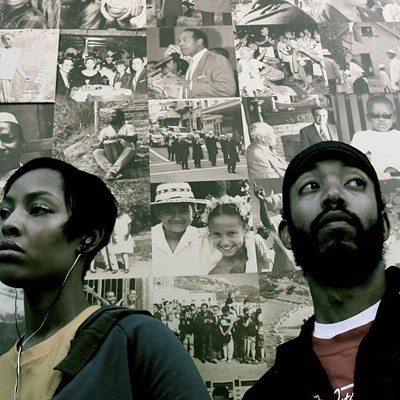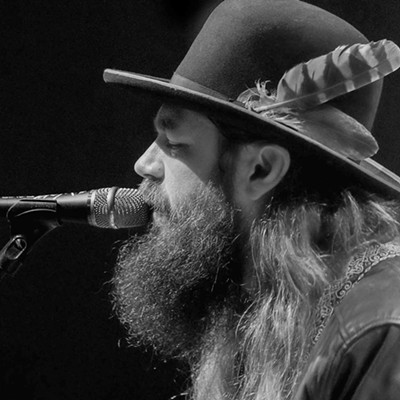The similarity resides not in Rouse's rough, smoky voice, but in the seemingly meticulous way in which he constructs each song, allowing the arrangements to work toward a melody's advantage instead of shoehorning everything into a three-chord format of simple guitar, bass and drums. In other words, Country Mouse City House is built out of formidable and mature grooves, rhythms and, yes, horn parts that you won't find in many indie/alt-rock releases.
Clearly, however, Rouse's tastes are shaped more by so-called alternative music. Case in point: When I point out a review that basically hails the Nebraska-born artist as "the new Jimmy Buffett," Rouse chuckles, then ponders the statement for a moment or two, trying to detect an insult.
"The new Jimmy Buffett?" he says. "Well, I guess writers need to be creative."
Actually, the characterization is not so far off. Rouse even recorded Country Mouse City House in an actual beach town. After three months of working on new material, he had enough songs to warrant going into producer Paco Loco's studio in Puerto de Santa Maria, a lovely coastal destination in southernmost Spain, where Rouse now lives. In just six days, he and his rhythm section--drummer Marc Pisapia and bassist James "Hags" Haggerty--fleshed out nine songs for the album (with some overdubs added later and mixing done back in Nashville, Tenn.).
For those who've never been to Puerto de Santa Maria, it's a paradise of sorts, where everyone drives around on scooters and hangs out at the beach all day and night.
"People may be missing a few more teeth down there," says Rouse, "but they're good folks."
It was in northern Spain, however, where the album's title popped into Rouse's head. He was walking a 1,000-year-old pilgrimage known as El Camino de Santiago (among English speakers, the Way of St. James), a 70-mile route that culminates in a visit to the medieval Cathedral of Santiago de Compostela. He didn't walk for spiritual purposes, but he found the exercise conducive to thinking about the eventual album's "themes of death, isolation, nature, religion and dreaming."
Some of that introspection comes across in a track like the perfect pop confection of "London Bridge," in which the speaker confesses: "Listen, honey, I am not the kid to tell you how to love or how to live / And if you think that I am just a bridge / Then I believe it now / This bridge is falling down."
And it's not just Rouse's moody lyrics that are polished. These days, everything about his songwriting suggests that he considers himself a serious craftsman instead of a wild-eyed artist plagued by visions and voices.
"I look at real songwriting as a dying art," he says. "Not many people today can sit down and play something that works on every level. There are plenty of kids who can strum three chords (and) call it a song, and the melody kind of sucks. But that's not songwriting, in my opinion. To me, the art of writing is like being a painter--you get better at it the more you do it. Of course, writing pop songs is not a fine art."
Rouse is back in the United States for a tour and, although he's glad to be back, he's already dreaming of Spain.
"It's nice to make the drive from Boise to the Pacific Northwest," he admits. "But the homesickness goes both ways now. When I'm in Spain too long, it's like vacation that never ends. Then I come back here, and it feels like one giant strip mall sprinkled with pharmaceutical ads. At some point, I've got to get back to Spain."










